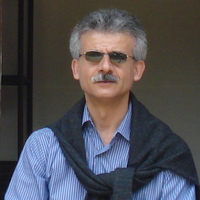Papers by Nicolas de Warren
Routledge eBooks, Feb 18, 2022
Husserls Vorlesungen zur Phanomenologie des inneren Zeitbewustseins wurden erstmals 1928 von Mart... more Husserls Vorlesungen zur Phanomenologie des inneren Zeitbewustseins wurden erstmals 1928 von Martin Heidegger im Jahrbuch fur Philosophie und phanomenologische Forschung (Band IX) herausgegeben; zitiert wird im Folgenden nach der 1976 von Rudolf Boehm in den Gesammelten Werken (Husserliana) herausgegeben Edition (Hua Band X).

Levinas studies, 2021
Although Levinas’s thinking has generated substantial attention for its emphasis on the irreducib... more Although Levinas’s thinking has generated substantial attention for its emphasis on the irreducibility of alterity, an unconditional responsibility for others, and “ethics as first philosophy,” his accentuation of war and suffering, and hence “evil” in a capacious sense, as endemic to existence, has attracted less notice. In this paper, I explore the originality of Levinas’s reflections on evil in his essay “Transcendence and Evil” against the backdrop of his earlier identification of the “evil of being” and historical conceptions of evil as “privation of the Good” and theodicy. In shadowing the biblical Book of Job, Levinas’s insight into the “transcendence of evil,” with its tear in the fabric of being and disruption of subjectivity, represents, as explored in this paper, a striking departure from his previous considerations on evil and categorical rejection of theodicy, in its secular and theological forms, while nonetheless insisting on the redemptive breakthrough of the Good at the heart of darkness.
Tijdschrift Voor Filosofie, 2011
Contributions to phenomenology, 2015
Areté, Dec 22, 2022
El artículo explora "la importancia de lo que nos preocupa" desde un ángulo fenomenológico, sigui... more El artículo explora "la importancia de lo que nos preocupa" desde un ángulo fenomenológico, siguiendo el espíritu del ensayo seminal de Harry Frankfurt. El trabajo discute de manera algunos de sus conceptos y asuntos centrales dentro de un marco husserliano de análisis. Mi tesis general es que la distinción tripartita de Frankfurt-conocer, conducta ética, cuidado-es igual de central para la fenomenología de la razón de Husserl y, más directamente, subyace a la ética husserliana de los valores y la vocación que se desarrolla en sus manuscritos de Friburgo de las décadas de 1920 y 1930.
Routledge eBooks, Feb 17, 2015
Hermann eBooks, Sep 1, 2018
Cambridge University Press eBooks, Jun 6, 2015
Graduate Faculty Philosophy Journal, 2009
International Journal of Philosophical Studies, 2006
Ajs Review-the Journal of The Association for Jewish Studies, Nov 1, 2022
Oxford Handbooks Online, 2018
This chapter explores the meaning and importance of the question “What is time?” in the phenomeno... more This chapter explores the meaning and importance of the question “What is time?” in the phenomenological philosophies of Husserl, Heidegger, and Levinas. As developed in this chapter, the question of time is for each of these thinkers inseparable from the question of subjectivity. To pose the question “What is time?” is equally to pose the question “Who is the subject in time?” In addition to a discussion of the relation between time and subjectivity, this chapter further examines how for each of these thinkers their respective understanding of time is configured around a twofold sense of temporal difference: the difference between past, present, and future within time; and the difference between time and eternity.
Tijdschrift Voor Filosofie, 2014










Uploads
Papers by Nicolas de Warren